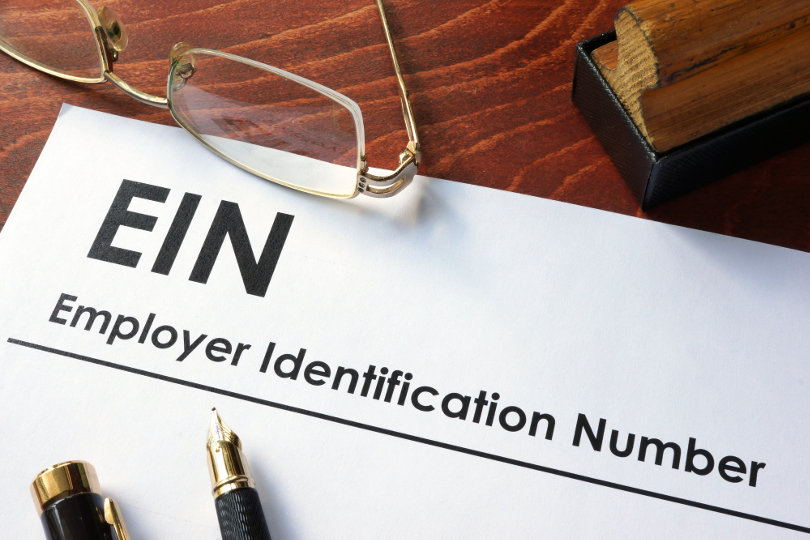If you just started and incorporated a business, chances are you may be thinking about the impact an employer identification number (EIN) can have on your small business.

What is an Employer Identification Number?
When a small business incorporates or forms an LLC, the IRS issues the entity a federal tax ID. This is also known as an employer identification number, or EIN.
An EIN is a nine-digit number that helps identify and track employer tax accounts when you incorporate or form an LLC for your business. EINs share some similarities with social security numbers (SSNs). Each ID is unique and does not expire. You may also use an EIN to identify your small business when filling out payroll reports, opening a corporate bank account, and paying federal taxes.
Where Can You Use an EIN?
Besides incorporation, there are several additional benefits that come with obtaining an EIN. Here are a few other areas where business owners may use this tax ID.
1. Hiring employees
One of the most popular reasons to obtain an EIN is when a small business plans to hire, and pay, employees. Prior to making any job offers, obtain an EIN. This will allow the IRS to track your business and ensure the business stays in compliance with tax laws.
2. Opening a business bank account
It’s a good idea to open a business bank account to separately accept checks and conduct transactions on behalf of your business. Most banks require a certified copy of an EIN before opening this account. Remember to bring along a copy of your certificate to the bank.
3. Building business credit
Establishing a credit profile on behalf of your business must be done separate from your personal credit profile. Obtaining this tax ID may help you establish and build business credit.
4. Establishing pension, profit sharing, and retirement plans
Do you plan to create these plans for the employees of your business? If so, you are considered the plan administrator and will need to obtain an EIN to establish these plans.
5. Changing your organization type
Do you plan to switch entity formations, such as incorporating as a corporation when you were previously an LLC? If so, the ownership of your organization is changing and obtaining an EIN will be necessary to reflect these changes.
6. Filing annual tax returns
As mentioned earlier, you’ll need an EIN to file taxes including annual tax returns. Once you obtain this tax ID, you can use it on documents for filing taxes.

How to Obtain an EIN
Now that you understand what an EIN is and where it can be used, you may be wondering how to obtain an EIN.
It’s important to note that businesses must follow EIN eligibility requirements. Here are a few to keep in mind.
- Your business must be physically located in the United States or its U.S. territories.
- The business owner must have a valid taxpayer identification number. This may be an SSN, EIN (if you already have it!), or an ITIN.
- The business must have a legal formation. If it does not, you may be encouraged to incorporate or form an LLC prior to filing for an EIN.
After meeting these requirements, you may file for an EIN directly with the IRS or work with a third-party filing service for filing and application assistance. Upon receiving approval for your tax ID, you may use your EIN to legally identify your small business.




